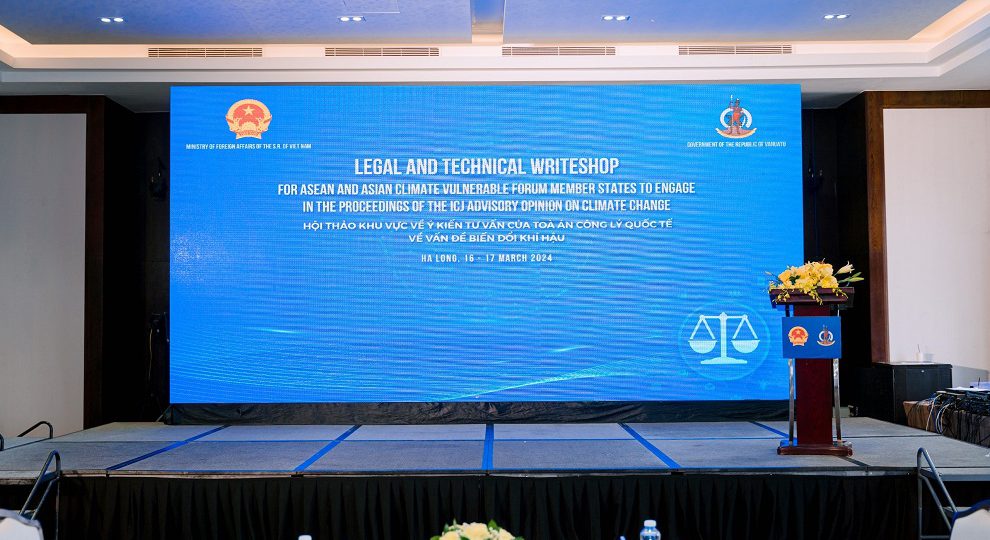The global climate system is changing rapidly and poses a high risk of rising sea levels and frequent extreme weather events. Vietnam is at the edge of South China Sea, the marginal sea of the Western Pacific Ocean so is much affected by climate change. Low-lying areas of the Mekong Delta in Vietnam, specifically Ca Mau, are suffering from salinity intrusion, with an increase in the salinity of surface water due to the impact of tides spreading deep into the mainland.
Vietnam is one of the five countries most affected by climate change and is being active and responsible in its climate change response. The Vietnamese government committed to addressing climate change issues. In Vietnam, environmental protection is not only for current economic development but also helps sustainable future economic development and solve the problem of climate change.
In 2023 the United Nations General Assembly passed a Resolution recognizing climate change being shared challenge. Vietnam and Vanuatu are two of the 18 countries in the Core Group promoting this Resolution.
In early March 2024, the Permanent Delegations of Vietnam and Vanuatu to the United Nations (UN) coordinated to organize an online preparatory meeting related to the procedure for seeking advice from the International Justice Court (ICJ) on national obligations in the issue of climate change.
Vietnam commits cooperation with other countries in sharing scientific knowledge, experience, resource for sustainable green economy and adaption of climate change. The Ministry of Foreign Affairs of Vietnam and the Vanuatuan Government jointly organized a legal and technical writeshop in Ha Long city, Quang Ninh province, Vietnam on March 16th – 17th to look into the proceedings of the International Court of Justice (ICJ)’s advisory opinion on climate change.






